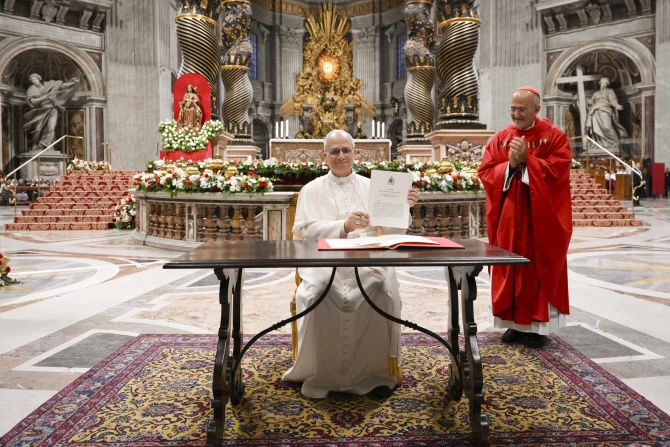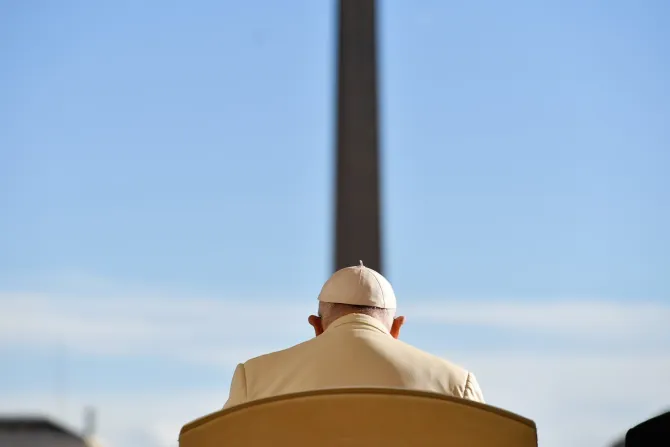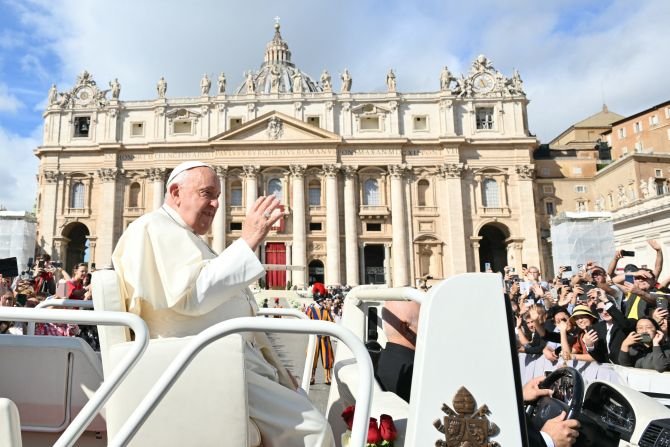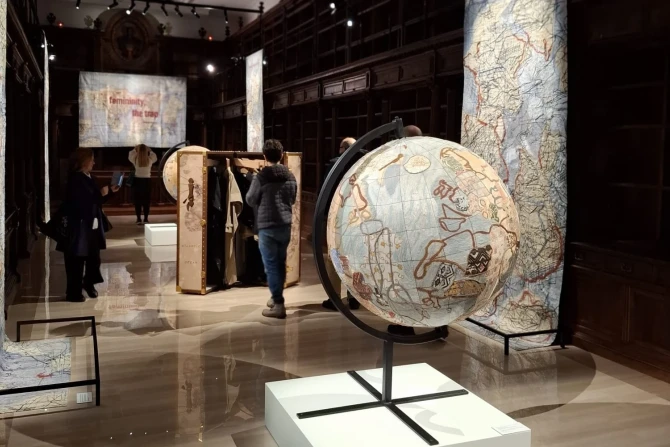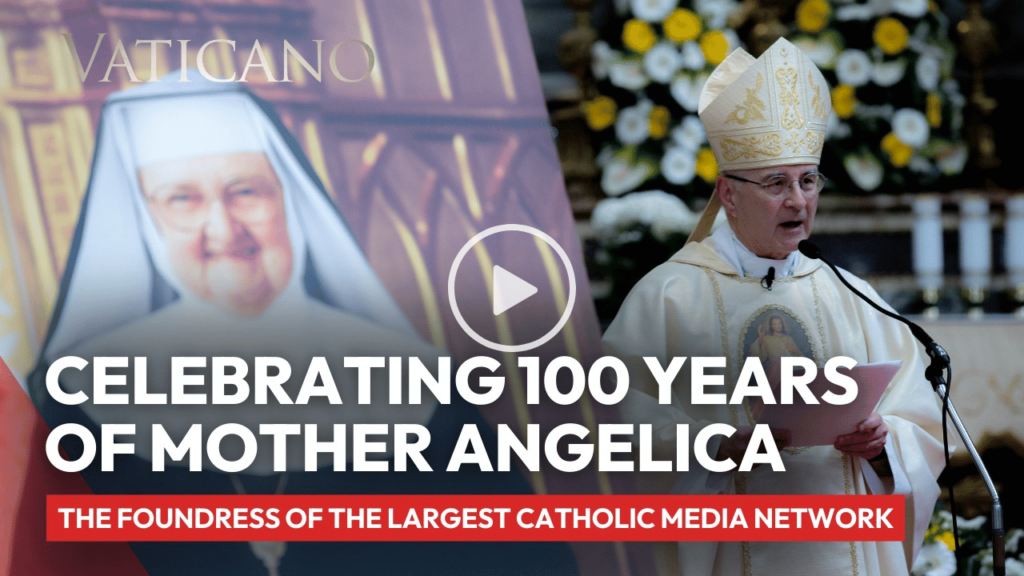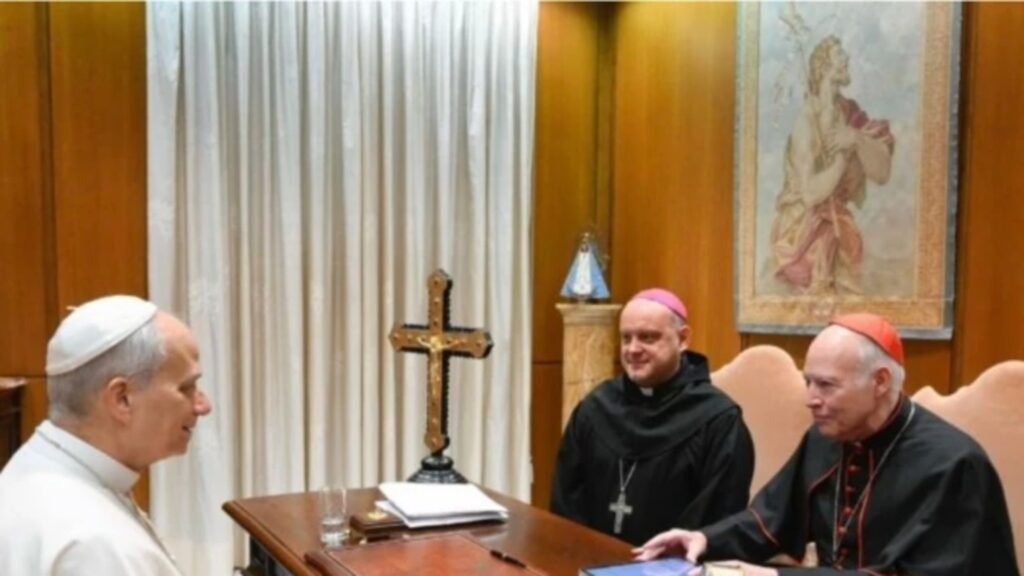Amid contemporary challenges to schools and universities — hyper-digitalization, social insecurity, and the crisis of relationships — a Catholic education should courageously teach the whole human person, Pope Leo XIV writes in a new apostolic letter.
In “Drawing New Maps of Hope,” Leo reflects on the role of a Catholic education 60 years after the Oct. 28, 1965, proclamation of Gravissimum Educationis, the Second Vatican Council’s declaration on Christian education.
“The Church celebrates a fruitful educational history but also faces the imperative to update its proposals in light of the signs of the times,” the pope writes in the letter, published in Italian on Oct. 28.
“We are aware of the difficulties: hyper-digitalization can fragment attention; the crisis of relationships can wound the psyche; social insecurity and inequalities can extinguish desire,” he says. “Yet, it is precisely here that Catholic education can be a beacon: not a nostalgic refuge but a laboratory of discernment, pedagogical innovation, and prophetic witness.”
In the eight-page document, the pontiff identifies three priorities for the educational community: cultivation of an interior life through space for silence, discernment, and dialogue with one’s conscience and with God; formation in a wise use of technology and artificial intelligence that puts the human person first; and education in language that is peace-building, nonviolent, and open to others.
He also notes the importance of making Catholic education financially accessible.
“Where access to education remains a privilege, the Church must push open doors and invent new paths, because ‘losing the poor’ is equivalent to losing the school itself,” he writes.
Digital challenges
Pope Leo in his letter draws attention to the digital environment and its impact on education, underlining that “technologies must serve the person, not replace them. They must enrich the learning process, not impoverish relationships and communities.”
“A Catholic university and school without vision risks soulless efficiency, the standardization of knowledge, which then becomes spiritual impoverishment,” he says.
He urges schools to avoid “technophobia” while strengthening teachers’ training in the digital sphere and promoting service-learning and responsible citizenship.
“No algorithm can replace what makes education human: poetry, irony, love, art, imagination, the joy of discovery, and even education in error as an opportunity for growth. The decisive point is not technology but the use we make of it,” the pope writes.
What is Christian education?
The pontiff’s document also provides a vision of Christian education that “embraces the whole person: spiritual, intellectual, emotional, social, and physical. … [Education] measures [its value] on the basis of dignity, justice, and the ability to serve the common good.”
He opposes this Catholic vision to a “purely mercantilistic approach” that measures education in terms of functionality and practical utility, he writes.
Leo said forming the whole person means avoiding compartmentalization, because “when faith is true, it is not an added ‘subject’ but a breath that oxygenates every other subject. Thus, Catholic education becomes leaven in the human community.”
Influence of St. John Henry Newman
The pope cites St. John Henry Newman, whom he will declare a new co-patron saint of the Church’s educational mission, throughout his letter.
Quoting the saint and soon-to-be doctor of the Church, the pontiff writes that “religious truth is not only a part but a condition of general knowledge.”
These words, he explains, “are an invitation to renew our commitment to knowledge that is as intellectually responsible and rigorous as it is deeply human. We must also be careful not to fall into the enlightenment of a ‘fides’ [faith] that is exclusively paired with ‘ratio’ [reason].”
He says this means Catholic universities and schools should be places where questions and doubt are accompanied, not silenced.
“There, the heart dialogues with the heart, and the method is that of listening, which recognizes the other as a good, not as a threat,” he says, pointing out that “cor ad cor loquitur” (“heart speaks to heart”) was St. John Henry Newman’s motto as a cardinal, taken from a letter of St. Francis de Sales: “Sincerity of heart, not abundance of words, touches the hearts of men.”
Leo points out that schools are communities of families, teachers, students, administrative and service staff, pastors, and civil society, founded on God.
The family remains the primary place of education, and “Catholic schools collaborate with parents, they do not replace them,” he affirms.
Ecological responsibility
The pontiff also touches briefly on Catholic schools’ responsibility in the social and ecological spheres.
“Forgetting our common humanity has led to divisions and violence; and when the earth suffers, the poor suffer most,” he writes. “Catholic education cannot remain silent: It must combine social justice and environmental justice, promote sobriety and sustainable lifestyles, and form consciences capable of choosing not only what is convenient but what is right.”
This article was originally published by CNA.

